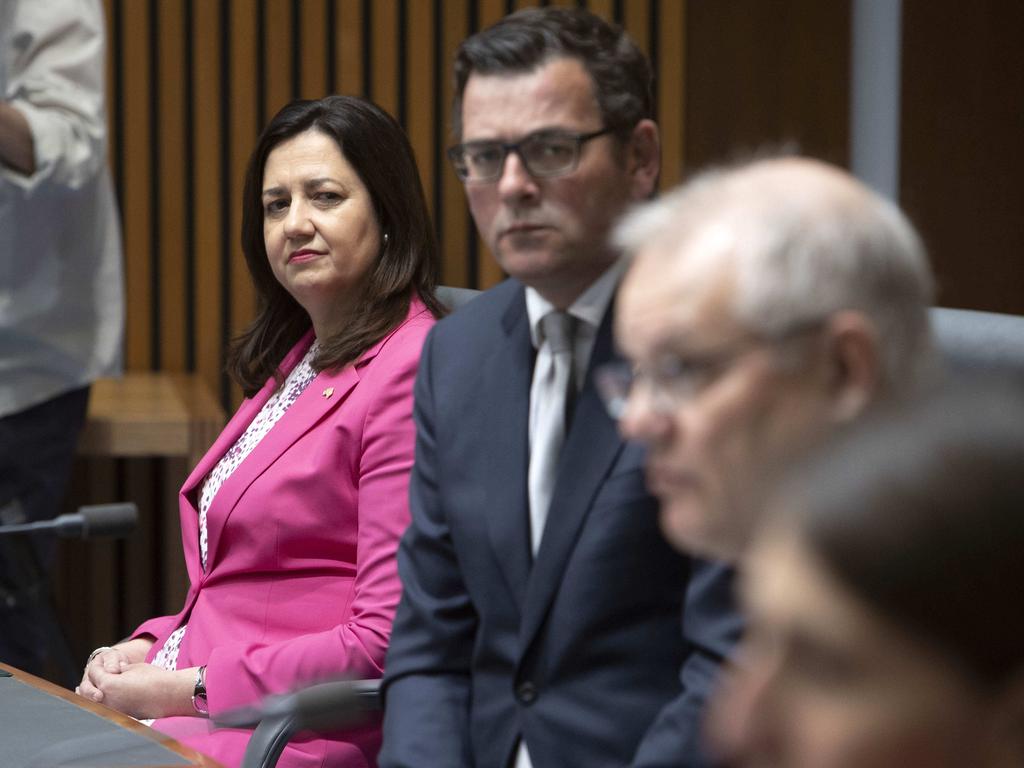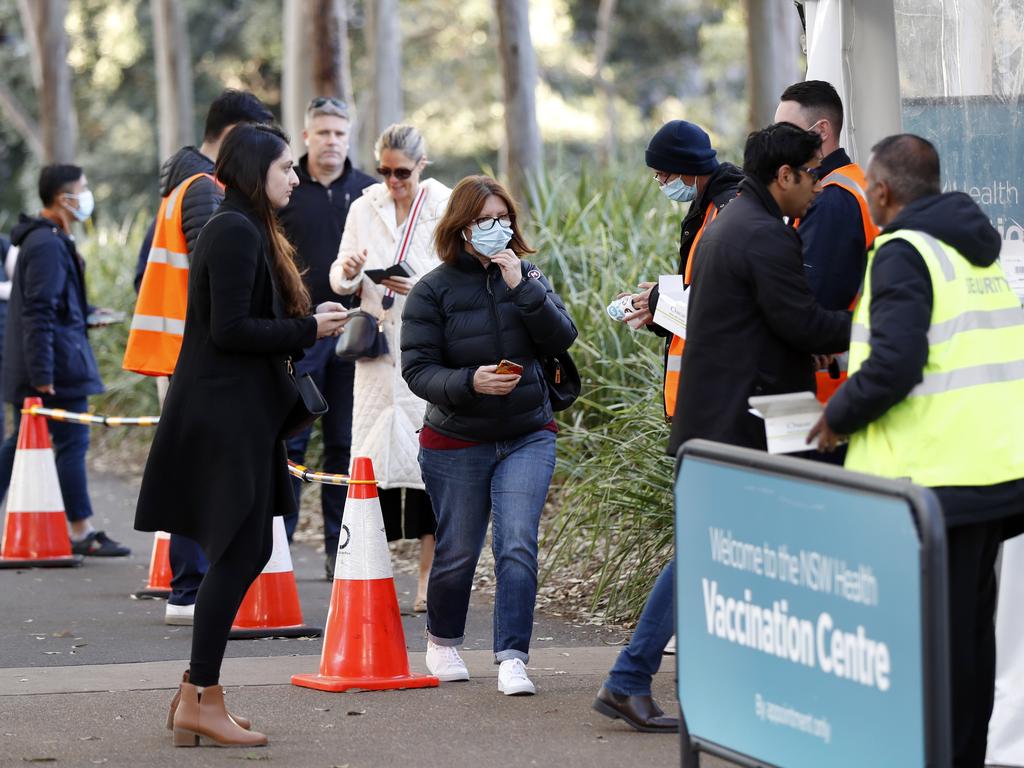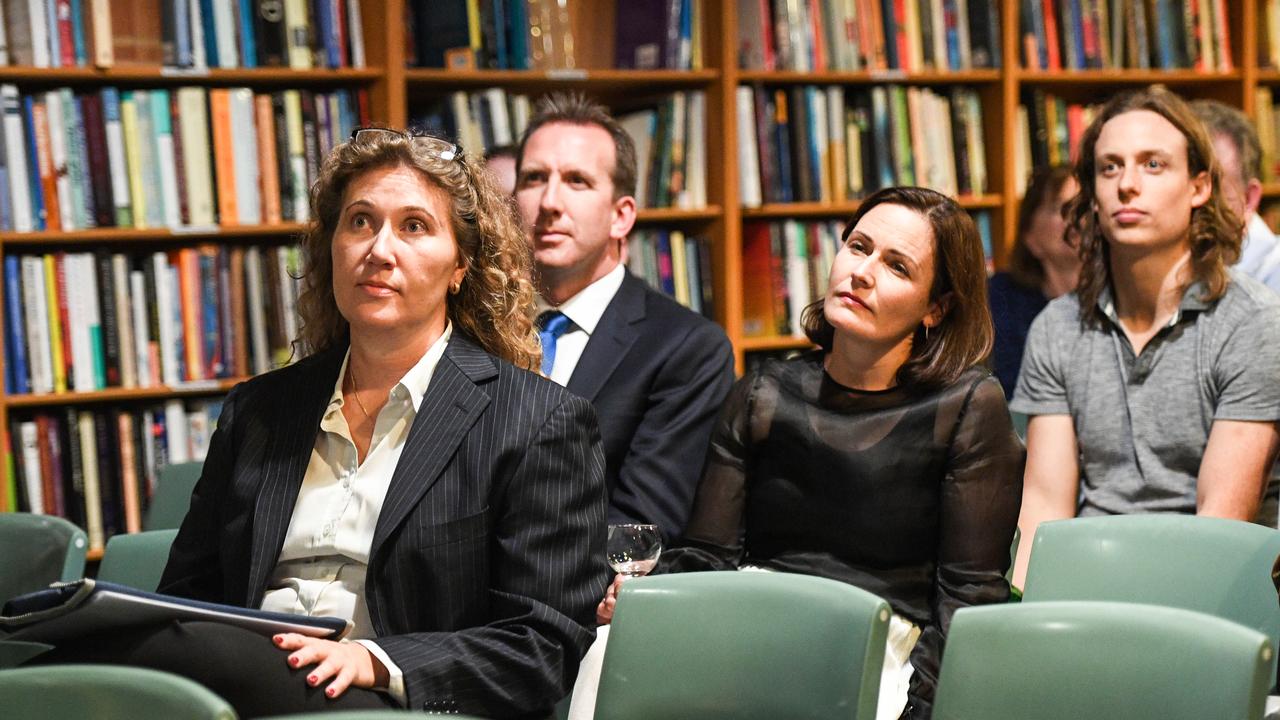Australians still not getting the point on Covid vaccination
Victoria’s recent Covid-19 lockdown cost it billions in forfeited economic activity and revived torment, but it did deliver one attendant bonus. Why have we not capitalised on it?
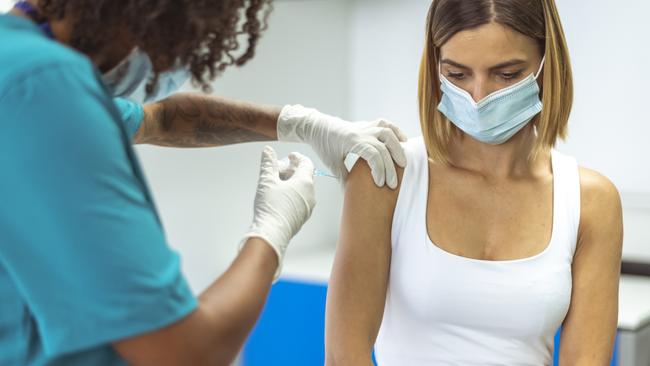
Victoria’s recent Covid-19 outbreak and subsequent lockdown cost it billions in forfeited economic activity and revived torment, especially for parents of school-age children. But there was an attendant bonus, one that could pay big in coming months, not least in saving lives and changing the political psychology of pandemic management: vaccination rates surged.
Analysis by the University of Melbourne’s Anthony Scott and Ou Yang shows in the week after restrictions began on May 28, the proportion of Victoria’s population who had been vaccinated rose by 4.6 percentage points compared to 1.6 per cent in the rest of the country.
Certainly, vaccination was one of the few reasons a person was allowed to leave home, while federal and state authorities lifted their game, especially the latter, whose mass hubs did a roaring trade.
“Governments need to build on this progress and sense of urgency,” Scott told Inquirer, adding they should also make better use of behavioural insights to nudge people to get vaccinated and to improve messaging. “Our research shows that people listen less to politicians compared to health professionals.” The latest phase of the national advertising campaign uses Nick Coatsworth, a trusted voice as an infectious disease expert and former deputy chief medical officer.
But the updated advice on the use of the AstraZeneca vaccine is a setback, even though the risk of dying from blood clotting due to the vaccine is extremely low. As Nobel laureate Peter Doherty tweeted on Friday: “Numbers who might die in Australia per 100,000 people from: AstraZeneca vaccine: 0.3, road accident: 4.7, (2019 figure), unvaccinated & contract Covid: 300-800. There are age effects in all of these, but massively weighted in favour of the vaccine for older people.”
This week Scott Morrison, Health Minister Greg Hunt and chief medical officer Paul Kelly sent a letter to 1.4 million Australians aged 70 and over, outlining the importance of those most at risk to get vaccinated, the availability of providers and how to book an appointment.
Federal officials managing the $41m information campaigns point to outbreaks as the best motivator for the complacent and hesitant. The rise to four cases in Sydney’s eastern suburbs cluster on Friday should lead to an increase in demand for jabs.
Health’s communications chief, Rachel Balmanno, told Senate estimates this month that “even little localised outbreaks and the situation we have now in Victoria changes the community’s sense of urgency around the vaccine more than anything else”.
But even after the outbreak, the proportion of Victorians unwilling to be vaccinated remained stubbornly high at 17 per cent, according to the Melbourne Institute’s Taking the Pulse of the Nation survey, while in the rest of Australia the percentage of those who do not want to be vaccinated fell from 19.5 per cent to 15.9 per cent in the first week of June.
The Pulse survey also showed the unvaccinated have a very strong preference for Pfizer: of the 80 per cent who expressed a preference (20 per cent said they would be willing to have any vaccine), 78 per cent prefer Pfizer.
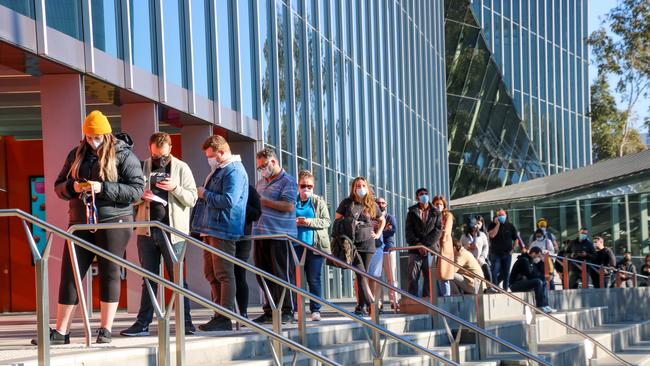
The advice that only those aged 60 and over get AstraZeneca will put pressure on imported Pfizer stocks, and may test the willingness of a motivated cohort: two-thirds have had at least one jab. “Our message is clear: to those 3.8 million Australians who have had their first dose of AstraZeneca, go and get your second dose,” Health secretary Brendan Murphy said on Thursday.
University of New South Wales infectious disease social scientist Holly Seale says people can find it extremely difficult to navigate the burgeoning information on vaccines, including official communications. “I also don’t think we are doing enough about misinformation,” she says, a lot of which is circulating in closed systems among ethnic communities, “some of which is outrageous, causing confusion among vaccine brands and feeding conspiracy theories”. Like the Melbourne Institute’s Scott, Seale argues funding has been slanted to developing vaccines and is calling for more behavioural research to improve uptake. Ahead of the rollout, Seale and colleagues in the Collaboration on Social Science and Immunisation group wrote a policy paper, based on adult and childhood programs.
“Provision of information and well-crafted messages alone, and then assuming that the community will make the ‘correct’ decision to be vaccinated, will not work,” the authors concluded in November. “Vaccination behaviours are shaped by a multitude of factors such as access, cultural beliefs, community, a person’s identity and their norms, education, and socio-economic status, as well as by philosophical beliefs.”
COSSI called for behavioural research on the barriers and drivers of immunisation to guide revisions in communication and delivery. Right now, there are fully fledged behavioural insights units in Victoria and NSW focused on improving customer needs, a key theme in state systems. These multidisciplinary teams are results-oriented, rather than academic, and try to nudge citizens to comply with laws. “Nothing changes until a customer gets a better experience,” is the NSW team’s mantra.
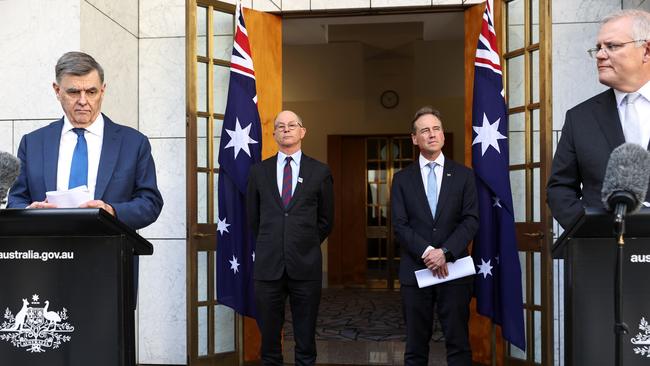
Canberra has a crack squad known as the Behavioural Economics Team of the Australian Government, an innovation by Malcolm Turnbull in 2016 to help all arms of the public service. A spokesman for the Department of Prime Minister and Cabinet said: “BETA has not been involved with the government’s Covid-19 vaccination advertising or public information campaigns.”
“There’s no point in having a vaccine unless you put funding into researching how to get the best strategies to raise the uptake of them,” says UNSW’s Seale. “That needs understanding of vaccine perceptions and behaviours and what various population groups think. Too little effort has been put into this.”
Seale says vaccination messaging and strategy will require tweaks. “Facts are important, but facts alone won’t necessarily lead to people moving forward. This is about getting people to come with us on a journey, explaining what vaccination means for them. Will it be so they can travel overseas? There’s no clear idea yet about that. People will need other nudges…maybe even incentives or reimbursement for their time.”
In Israel, for instance, the “green pass”, as the country’s vaccine certificate is known, was introduced in February. Former Jerusalem deputy mayor Rachel Azaria says the green pass has brought people together. “The public instinctively understood that, more than anything, it was a way to nudge people to get vaccinated, not a way to discriminate against those who had received their doses and those who had not,” Azaria wrote in The Economist in April.
Scott argues understanding the cause of vaccine hesitancy is the first step in designing strategies and policies to reduce it. “A clear plan to research and address this concerning trend should have been put in place last year but is still nowhere in sight. In the meantime, the cost of prevailing low vaccination rates becomes increasingly large when outbreaks occur,” he wrote in a paper with Yang this week.
“Incentives are being suggested and used in some countries, including whether people should be able to work without vaccination, and whether they should be able to travel or go to restaurants or sporting events. Softer and more positive ‘carrots’ rather than ‘sticks’ include vouchers, discounts, perks, lotteries, or cash payments”.
Of course, some will find payment a turn-off, suspecting that something must be intrinsically wrong with vaccines. “We don’t yet know how incentives in other countries are working,” Scott tells Inquirer. “Generally, in other settings, including childhood immunisation, cash incentives are effective. They are useful as their effect can be immediate.
“The sense is that they may not persuade people who are against vaccination, for whatever reason, but could nudge people who are not sure. Or at least persuade them to get vaccinated quicker and not wait around for ‘better vaccines’. If it takes a cash payment to ‘take a risk’ that actually is so low it is zero risk, then that is fine.”
Health’s comms chief, Balmanno, told the Senate about two-thirds of the population now are ready, willing and able to be vaccinated. “That is the current focus of our communication and campaign efforts – to vaccinate those ready, willing and able while continuing to work on persuading those who are not,” she said.
“One of the important elements of persuading the people who are a bit more on the fence, shall we say, is norming the behaviour. Seeing other people you know get vaccinated safely and effectively makes quite a considerable difference to a lot of people. It is not about what they hear from an expert … For a lot of people, as the gradual vaccination of the population becomes normed, it will shift a lot of people.”


